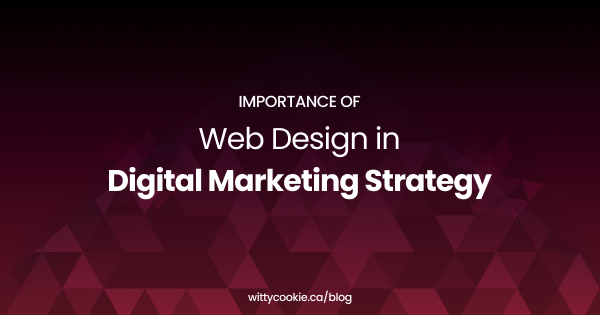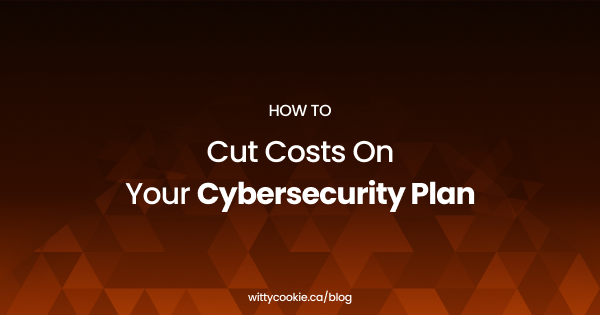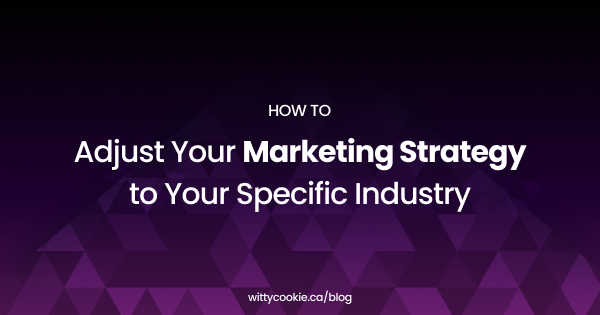Importance of Web Design in Digital Marketing Strategy
Importance of web design in digital marketing strategy
Unlike your shop front, office or warehouse, your website remains conveniently open 24 hours a day, seven days a week, and allows you to reach local, interstate, as well as international clients. A good website enables your small business to compete on the same footing as much bigger organizations and helps to shape the perception that customers have of your business, consequently becoming an essential asset to any online marketing and branding strategy. It can be a powerful, dynamic resource for a small business as it gives you an online presence that can be seen by millions of potential customers. This therefore showcases the importance of web design in digital marketing strategy success and the value of having a good site with good web design for business growth and development.
How a good site and web design can help grow your business
The degree to which a website can benefit your business depends on the nature of your business, and the degree to which you choose to utilize its available technologies and tools. To be able to gauge the success of your website, you must first think about the goals you want your website to achieve as well as the proper strategy to implement in order to be able to reach your goals. To understand how a website can be beneficial for your business and its digital marketing strategy, here are some ways a website can grow your business:
1. Improving your brand reputation
Having a proper and thorough website design that has a good user interface for enhanced user experience can help instill a level of trust in your business in the perspective of your website customers. This helps to establish your business as being credible and professional; a company that customers want to do business with. The internet also offers the opportunity for small businesses to be on equal standing with their larger counterparts, consequently allowing them to compete on a more level playing field.
2. Cost effective marketing and promotion strategy
A website enables you to promote your business in a more cost effective and sustainable manner as compared to marketing on more traditional offline methods. By marketing on your website, you have the ability to update, add to, and change your marketing content with minimal effort and additional costs while also being able to reach a wider audience, capture and build an extensive database of leads, conduct market research through website analysis, and generate interest through hosting competitions and promotions online.
3. Market expansion
A website can be accessed anywhere, any time. This means a vast number of potential customers can find and reach your company and its website both locally and globally without the need for any additional overhead costs and new infrastructure – those of which would be needed if you were instead setting up new brick and mortar stores in new markets.
4. Selling while you sleep
Because the internet never turns off, your website enables you to increase your hours of operation and consequently allows your business to become more readily available to your website customers no matter when they want to do business.
5. Added value through more content
You can use your website to provide additional value to customers by offering them product information, tips, advice, and general interest content that can inform and entertain with ease. Think about the content of your website to optimize the value you can provide for your users and customers to optimize the effectiveness of your online presence and digital marketing strategy.
6. Reduce cost of sale and processing
Much of the overhead costs associated with making sales to customers face-to-face can be reduced when selling online by utilizing favorable economies of scale – those of which would not be available for regular brick and mortar shops.
Want to get started on creating a great website? Check out WittyCookie’s award-winning website design services!
Best way to design a website
Site visitors on average only spend a few seconds on your site before deciding whether or not to stay or leave. This is why it is important to know and follow the best practices for good web design as well as to understand what customers consider as desirable attributes to have in a website in order to best suit their needs, preferences, and expectations. Note that some of these factors are universal in nature while some can be industry specific. To maximize the potential and success of your website, you should be knowledgeable in and be able to address both.
To get you started, here are 7 factors that you should consider when designing your website as they are proven to affect user experience.
1. Personalization
This is when a website treats each visitor as an individual, recognises visitors when they revisit, and delivers information based on the visitor’s preferences and past behaviour on the site (this is done technically through user registration and login, cookies, customisation of dashboards, etc). Personalisation enables greater targeting of information, increases content relevance, and consequently enhances user experience.
2. Interactivity
Having an interactive site empowers users with the ability to determine what, how, when, and why they consume content. On top of this, good interactivity also provides users with the ability to create their own content. Having good user interactivity not only enhances the user experience, but also encourages users to contribute to your brand, forging stronger and more loyal relationships. Some studies show that the higher the degree of interactivity, the higher the website’s attractiveness in the eyes of the user. Having a high level of interactivity is also important when trying to convert site visitors from simple “lookers” of the site, to “buyers” who convert. To read more about the importance of web interactivity, check out this article by Hongkiat!
Want to create amazing interactive websites? Check out WittyCookie’s award-winning website design services!
3. Informativeness
This refers to how informative and useful the information provided on your website is from the perspective of the user. When writing the content of your site, think about what your content offers and how it benefits your users – an informative website is great for converting web visitors. When thinking about your website content creation strategies, think about how your content can add value to users.
Increasing the usefulness and relevance of site content can be done through numerous methods. These include, but are not limited to, providing support information for your products/services, having correct contact details, removing expired information, updating content regularly, using relevant keywords on your site so users can quickly determine the relevance of their search, as well as having clear “calls to action” so the customer can easily understand what the next steps are.
4. Navigation
This refers to how easily users can find what they are looking for. Generally speaking, the more complex and difficult a site is to navigate, the more frustrated the user will be. This consequently reduces user experience.
5. Privacy and Security
This relates to how customer and transaction data is collected, processed, and used. Ideally, websites should provide security and privacy statements, secure payment gateways and have full disclosure statements for warranty, returns policy and liabilities.
6. Entertainment
Numerous studies have suggested that the effectiveness of a website can depend on how well it engages the user by being fun, exciting, enjoyable, and entertaining. Having an entertaining website also encourages visitors to return to the site in the future and spend longer amounts of time exploring the rest of the site.
7. Accessibility
This is the ease by which visitors can reach and use the site. Factors such as poor download speeds and long lag time can be a source of irritation for users, which then may also reflect negatively on your brand as it affects user experience.
To read more about the importance of web design in digital marketing strategy success, check out this article written by Kiran Beladiya!
Want to get started on creating a great website? Check out WittyCookie’s award-winning website design services!



